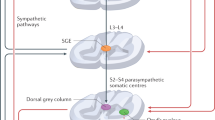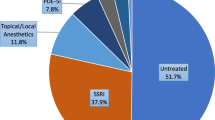Abstract
While psychological issues are present in most patients with premature ejaculation (PE), whether as a cause or a consequence of the disorder, the effectiveness of psychological intervention for PE is not clear. Searches of the MEDLINE, EMBASE, PsychINFO, LILACS and the Cochrane Library electronic databases find little high-quality evidence for the psychosexual and behavioral approaches to treatment of PE. Five randomized and four quasi-randomized trials were included in this Review. Little evidence was found that psychological interventions are effective in the treatment of PE. Three studies showed strong evidence in support of improved intravaginal ejaculatory latency times following psychosexual therapy combined with pharmacotherapy, compared with monotherapy. One study found that functional–sexological treatment markedly improved duration of intercourse, sexual satisfaction, and sexual function. Limitations of published studies include a lack of randomization, uncertain clinical significance of outcomes, absence of compelling follow-up data that show long-term response and lack of reproducibility. Randomized trials with large sample sizes are still needed to expand the currently available evidence on psychological intervention for treating PE. Besides examining the main effects of treatment, trials in this field should also address the complex interactions between patient characteristics, PE subtype and treatment approach.
Key Points
-
The effect of premature ejaculation (PE) on affected men and their sexual relationships is significant; such men have decreased sexual self-confidence, difficulty in establishing relationships, and poor quality of life
-
Currently available trials yield inconsistent and poor conclusions on the effectiveness of psychotherapy for PE
-
Limitations of studies include lack of randomization, uncertain clinical significance of outcomes, absence of compelling follow-up data on long-term response and lack of reproducibility
-
One study shows significant improvements from baseline in duration of intercourse, sexual satisfaction and sexual functioning with new functional–sexological treatment
-
Three studies show improvement in intravaginal ejaculatory latency time for combined psychosexual therapy and pharmacotherapy, compared with monotherapy
-
Large randomized trials are still needed that will further explore psychological interventions for treating PE; these trials should have long follow-up to investigate delayed effects of psychological interventions
This is a preview of subscription content, access via your institution
Access options
Subscribe to this journal
Receive 12 print issues and online access
$209.00 per year
only $17.42 per issue
Buy this article
- Purchase on Springer Link
- Instant access to full article PDF
Prices may be subject to local taxes which are calculated during checkout
Similar content being viewed by others
References
McMahon, C. G. Clinical trial methodology in premature ejaculation observational, interventional, and treatment preference studies—part I—defining and selecting the study population. J. Sex. Med. 5, 1805–1816 (2008).
McMahon, C. G. Clinical trial methodology in premature ejaculation observational, interventional, and treatment preference studies—part II—study design, outcome measures, data analysis, and reporting. J. Sex. Med. 5, 1817–1833 (2008).
Porst, H. et al. The premature ejaculation prevalence and attitudes (PEPA) survey: prevalence, comorbidities, and professional help-seeking. Eur. Urol. 51, 816–823 (2007).
Jannini, E. A. & Lenzi, A. Epidemiology of premature ejaculation. Curr. Opin. Urol. 15, 399–403 (2005).
McMahon, C. G. et al. An evidence-based definition of lifelong premature ejaculation: report of the International Society for Sexual Medicine ad hoc committee for the definition of premature ejaculation. BJU Int. 102, 338–350 (2008).
American Psychiatric Association. Diagnostic and statistical manual of mental disorders. 4th edn (American Psychiatric Association, Washington D. C., 2000).
Waldinger, M. D. & Schweitzer, D. H. Changing paradigms from an historical DSM-III and DSM-IV view towards an evidence based definition of premature ejaculation. Part I: validity of DSM-IV-TR. J. Sex. Med. 3 (Part a), 682–692 (2006).
Waldinger, M. D. & Schweitzer, D. H. Changing paradigms from an historical DSM-III and DSM-IV view towards an evidence based definition of premature ejaculation. Part II: proposals for DSM-V and ICD-11. J. Sex. Med. 3 (Part b), 693–705 (2006).
Waldinger, M. D. Different etiologies and pathophysiologies of premature ejaculation determine its treatment. J. Sex. Marital Ther. 34, 1–13 (2008).
Symonds, T., Roblin, D., Hart, K. & Althof, S. E. How does premature ejaculation impact a man's life? J. Sex. Marital Ther. 29, 361–370 (2003).
Patrick, D. L. et al. Premature ejaculation: an observational study of men and their partners. J. Sex. Med. 2, 358–367 (2005).
Rowland, D. L., Patrick, D. L., Rothman, M. & Gagnon, D. D. The psychological burden of premature ejaculation. J. Urol. 177, 1065–1070 (2007).
Masters, W. H. & Johnson, V. E. Human Sexual Response. (Little & Brown, Boston, 1966).
Althof, S. E. 'It Was the Best of Times; It Was the Worst of Times'. J. Sex. Marital Ther. 33, 399–403 (2007).
Kaplan, H. S. The New Sex Therapy. (Brunner–Mazel, New York, 1974).
Kaplan, H. S. PE: How to Overcome Premature Ejaculation. (Brunner–Mazel, New York, 1989).
Metz, M. E., Pryor, J. L., Nesvacil, L. J., Abuzzahah, F. Sr & Koznar, J. Premature ejaculation: a psychological review. J. Sex. Marital Ther. 23, 3–23 (1997).
Althof, S. The psychology of premature ejaculation: therapies and consequences. J. Sex. Med. 3 (Suppl. 4), 324–331 (2006).
Semans, J. H. Premature ejaculation: a new approach. South Med. J. 49, 353–358 (1956).
Masters, W. & Johnson, V. Human Sexual Inadequacy. (Little & Brown, Boston, 1970).
Hartmann, U. The PEQUEST: a multidimensional instrument for the assessment of premature ejaculation. Int. J. Impot. Res. 8, 119 (1996).
Yuan, J. M. et al. Sexual function of premature ejaculation patients assessed with the Chinese Index of Premature Ejaculation. Asian J. Androl. 6, 121–126 (2004).
Higgins, J. P. T. & Green, S. (eds). Cochrane Handbook for Systematic Reviews of Interventions, version 5.0.1. (Wiley, Chichester, 2008).
Kaplan, H. et al. Group treatment of premature ejaculation. Arch. Sex. Behav. 3, 443–452 (1974).
Lowe, J. C. & Mikulas, W. L. Use of written material in learning self-control of premature ejaculation. Psychol. Rep. 37, 295–298 (1975).
Golden, J. S., Price, S., Heinrich, A. G. & Lobitz, W. C. Group vs couple treatment of sexual dysfunctions. Arch. Sex. Behav. 7, 593–602 (1978).
Zeiss, R. A., Christensen, A. & Levine, A. G. Treatment for premature ejaculation through male-only groups. J. Sex. Marital Ther. 4, 139–143 (1978).
Trudel, G. & Proulx, S. Treatment of premature ejaculation by bibliotherapy: an experimental study. J. Sex. Marital Ther. 2, 163–167 (1987).
Carufel, F. & Trudel, G. Effects of a new functional–sexological treatment for premature ejaculation. J. Sex. Marital Ther. 32, 97–114 (2006).
Tang, W., Ma, L., Zhao, L., Liu, Y. & Chen, Z. Clinical efficacy of Viagra with behavior therapy against premature ejaculation [Chinese]. Zhonghua Nan Ke Xue 10, 366–367 (2004).
Li, P., Zhu, G. S., Xu, P., Sun, L. H. & Wang, P. Interventional effect of behavioral psychotherapy on patients with premature ejaculation [Chinese]. Zhonghua Nan Ke Xue 12, 717–719 (2006).
Yuan, P., Dai, J., Yang, Y., Guo, J. & Liang, R. A comparative study on treatment for premature ejaculation: citalopram used in combination with behavioral therapy versus either citalopram or behavioral therapy alone [Chinese]. Chin. J. Androl. 22, 35–38 (2008).
Abdel-Hamid, I. A., El Naggar, E. A. & El Gilany, A.-H. Assessment of as-needed use of pharmacotherapy and the pause–squeeze technique in premature ejaculation. Int. J. Impot. Res. 13, 41–45 (2001).
Perelman, M. A. A new combination treatment for premature ejaculation: a sex therapist's perspective. J. Sex. Med. 3, 1004–1012 (2006).
Althof, S. Psychological treatment strategies for rapid ejaculation: rationale, practical aspects and outcome. World J. Urol. 23, 89–92 (2005).
Melnik, T. & Abdo, C. H. N. Psychogenic erectile dysfunction: comparative study of three therapeutic approaches. J. Sex. Marital Ther. 31, 243–255 (2005).
Phelps, J. S., Jain, A. & Monga, M. The PsychoedPlusMed approach to erectile dysfunction treatment: the impact of combining a psychoeducational intervention. J. Sex. Marital Ther. 30, 305–314 (2004).
Sharlip, I. D. Guidelines for the diagnosis and management of premature ejaculation. J. Sex. Med. 3 (Suppl. 4), 309–317 (2006).
Levine, S. B. Marital sexual dysfunction: ejaculation disturbances. Ann. Intern. Med. 84, 575–579 (1976).
Hawton, K., Catalan, J. & Fagg, J. Sex therapy for erectile dysfunction: characteristics of couples, treatment outcome, and prognostic factors. Arch. Sex. Behav. 21, 161–175 (1992).
McCarthy, B. W. Cognitive-behavioral strategies and techniques in the treatment of early ejaculation. In Principles and Practice of Sex Therapy: Update for the 90s (Eds Leiblum, S. R. & Rosen, R. C.) 141–167 (Guilford, New York, 1990).
Symonds, T., Roblin, D., Hart, K. & Althof, S. How does premature ejaculation impact a man's life? J. Sex. Marital Ther. 29, 361–370 (2003).
Hartmann, U., Schedlowski, M. & Kruger, T. H. C. Cognitive and partner-related factors in rapid ejaculation: differences between dysfunctional and functional men. World J. Urol. 23, 93–101 (2005).
Althof, S. E. & Wieder, M. Psychotherapy for erectile dysfunction: now more relevant than ever. Endocrine 23, 131–134 (2004).
Althof, S. E. & Symonds, T. Patient reported outcomes used in the assessment of premature ejaculation. Urol. Clin. North Am. 34, 581–589 (2007).
Waldinger, M. D. The need for a revival of psychoanalytic investigations into premature ejaculation. J. Men's Health Gender 3, 390–396 (2006).
Author information
Authors and Affiliations
Corresponding author
Ethics declarations
Competing interests
The authors declare no competing financial interests.
Rights and permissions
About this article
Cite this article
Melnik, T., Glina, S. & Rodrigues, O. Psychological intervention for premature ejaculation. Nat Rev Urol 6, 501–508 (2009). https://doi.org/10.1038/nrurol.2009.147
Published:
Issue Date:
DOI: https://doi.org/10.1038/nrurol.2009.147
This article is cited by
-
Premature ejaculation in primary care: communication strategies versus usual care for male patients consulting for a sexual, urogenital or psychological reason – GET UP: study protocol for a cluster randomised controlled trial
Trials (2018)
-
Addressing Issues of Sexuality in Couples Therapy: Emotionally Focused Therapy Meets Sex Therapy
Current Sexual Health Reports (2018)
-
An Integrative Approach to the Treatment of Premature Ejaculation
Current Sexual Health Reports (2014)



